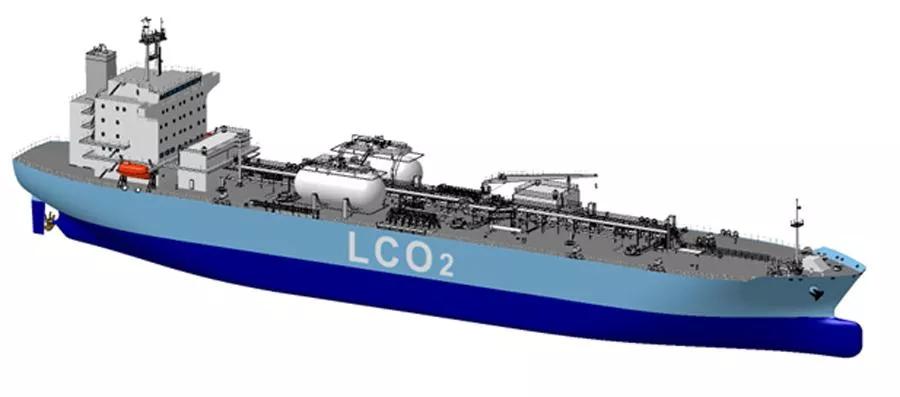Mitsubishi Heavy Industries, Imabari Shipbuilding Rename MI LNG to MILES
Under its updated designation, MILES will design and develop new commercial liquefied CO2 carriers and provide functional design for alternatively fueled ships.
A joint venture established in 2013 by Mitsubishi Heavy Industries (MHI) and Imabari Shipbuilding—MI LNG Co.—will be renamed to MILES Co. on Jan. 1, 2025. The acronym stands for “Marine-design Initiative for Leading Edge Solution”. MILES will start designing and developing liquefied CO2 carriers (LCO2 carriers) to meet growing demand and create functional designs for alternatively fueled commercial ships.
MILES Background
MILES originally designed and sold LNG carriers but, in July 2023, it signed an agreement with Nihon Shipyard (NSY) to perform design work for commercial ships besides LNG carriers. NSY and Mitsubishi Shipbuilding began joint development of new LCO2 carriers to accelerate international-scale carbon transportation. In August 2024, the companies collaborated with:
- Kawasaki Kisen Kaisha
- Mitsui O.S.K. Lines
- Nippon Yusen Kabushiki Kaisha
- Imabari Shipbuilding
- Japan Marine United
LCO2 carrier; image credit: MHI

This consortium started joint studies to set standard specifications and designs for LCO2 carriers. In the wake of decarbonization initiatives in the maritime transportation sector, demand is increasing for low-carbon, LNG-fueled ships. The demand for ammonia- and methanol-powered vessels is growing as well.
MHI News
In late October 2024, Mitsubishi Heavy Industries Marine Machinery and Equipment Co. (MHI-MME) and Jiangsu Masada Heavy Industries finalized a licensing agreement for the manufacture and sale of MET turbochargers: an exhaust gas turbine-type turbocharger for two-stroke marine engines. Jiangsu Masada will begin manufacturing the turbochargers in 2025 with an initial focus on assembly, eventually expanding to full-scale production.
Prior to the MET turbocharger, MHI-MME developed the non-water-cooled turbocharger in 1965—since then, high-efficiency and high-capacity models have been added to the portfolio. The total cumulative production volume of MET turbochargers reached 45,000 units, which accounts for over 40% of the global market for units installed in marine two-stroke engines. Previously, Jiangsu Masada and MHI-MME completed licensing agreements for deck cranes in 2008 and steering gears and deck machinery in 2012.
Also in October, MHI Thermal Systems signed an agreement with Emirates Central Cooling Systems Corp. (Empower) to supply large-scale centrifugal chillers for district cooling plants in Dubai, United Arab Emirates. Per the agreement, MHI Thermal Systems will deliver 18 advanced chillers, ready for delivery by 2025, with an aggregate cooling capacity of 56,250 refrigeration tons (RT).
Empower will operate the chillers in three district cooling system plants, supplying chilled water for cooling to residential, commercial, healthcare, educational, and multi-use projects. The agreement also includes a provision enabling Empower to increase the order size, potentially raising the total capacity to 100,000 RT. Delivery will begin sequentially from 2025, bringing Empower’s total number of chillers to 46 units.
A few weeks earlier, MHI and Osaka Gas led the latest $50 million funding round for Koloma—a geologic hydrogen startup founded by Pete Johnson and headquartered in Denver, CO. The investment was executed through MHI America which joins a network of investors, including Bill Gates’ Breakthrough Energy Ventures, Amazon’s Climate Pledge Fund, United Airline’s Sustainable Flight Fund, and Energy Impact Partners. The company’s total investments amount to more than $350 million since its 2021 launch.